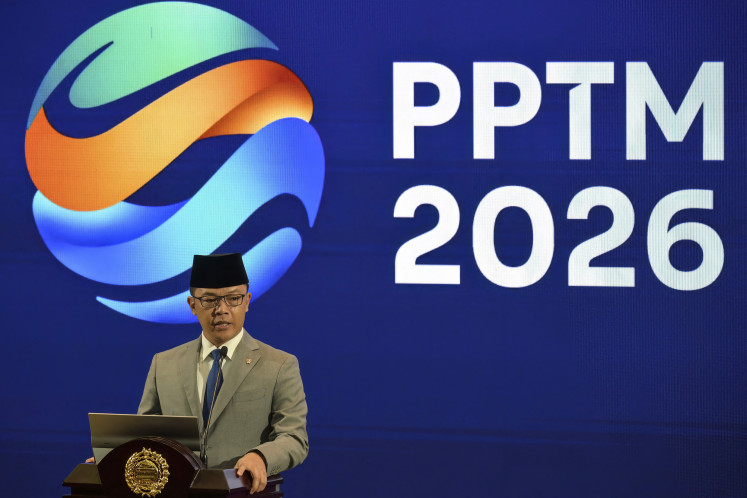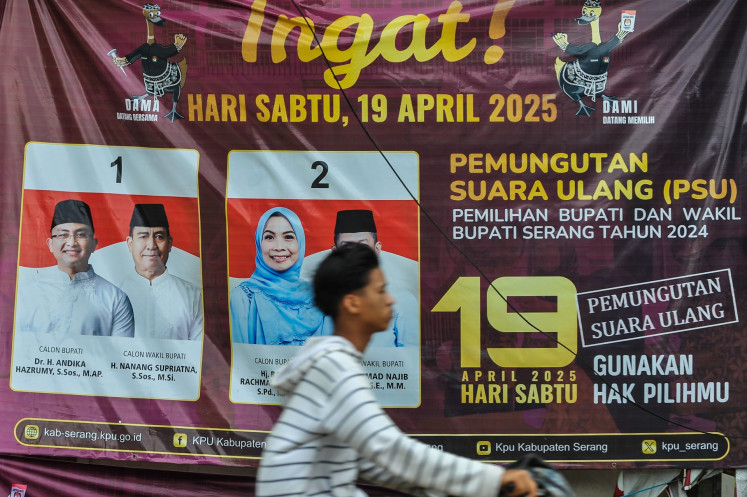Popular Reads
Top Results
Can't find what you're looking for?
View all search resultsPopular Reads
Top Results
Can't find what you're looking for?
View all search resultsIndonesia’s economic growth: Between optimism and reality
While there are reasons for some optimism, the country needs to do more in terms of reforms and inclusivity to not just drive the domestic economy, but also to become the region’s leader in sustainable development.
Change text size
Gift Premium Articles
to Anyone
A
s Indonesia enters a critical phase of political transition amid global economic uncertainties, questions loom over the country’s economic trajectory.
The latest data offers little comfort: In the first quarter (Q1) of 2025, gross domestic product (GDP) grew only 4.87 percent year-on-year, the lowest post-pandemic growth rate since 2021. Beneath this figure lies a worrying reality: sluggish household consumption, stagnant investment and declining exports, all compounding a fragile recovery.
This is not just a matter of macroeconomic statistics. As someone who has worked closely with policymakers in rural areas, I’ve witnessed how these numbers translate into real consequences, from delayed village infrastructure to rising anxiety among street vendors. It’s a sobering reminder that economic growth is ultimately about people: their struggles, hopes and dignity.
Despite this, the government remains optimistic. The official growth target for 2026 is between 5.8 and 6.3 percent, a bold vision that signals confidence. But how realistic is this projection? What conditions must be met to make it achievable?
Household consumption, which contributes over 50 percent to GDP, grew only 4.89 percent. Weaker purchasing power, driven by food inflation, rising energy prices and stagnant wages, weighs heavily on families.
In my hometown of Wonosari, Yogyakarta, owners of small shops are struggling. “I used to sell 50 rice packs a day. Now even 30 is hard,” one vendor lamented. This grassroots voice underscores the wider economic strain felt across the country.
Investment, another critical pillar, remains stagnant. Although Bank Indonesia lowered its benchmark interest rate in late 2024, this has yet to spur significant business activity. Investors remain hesitant due to postelection uncertainty, global geopolitical tensions and bureaucratic inefficiencies. One business owner confided, “It’s not the taxes, it’s the rules that change every year.” This hesitation speaks volumes: Investor confidence hinges not just on fiscal incentives, but also on legal certainty and regulatory stability.



















